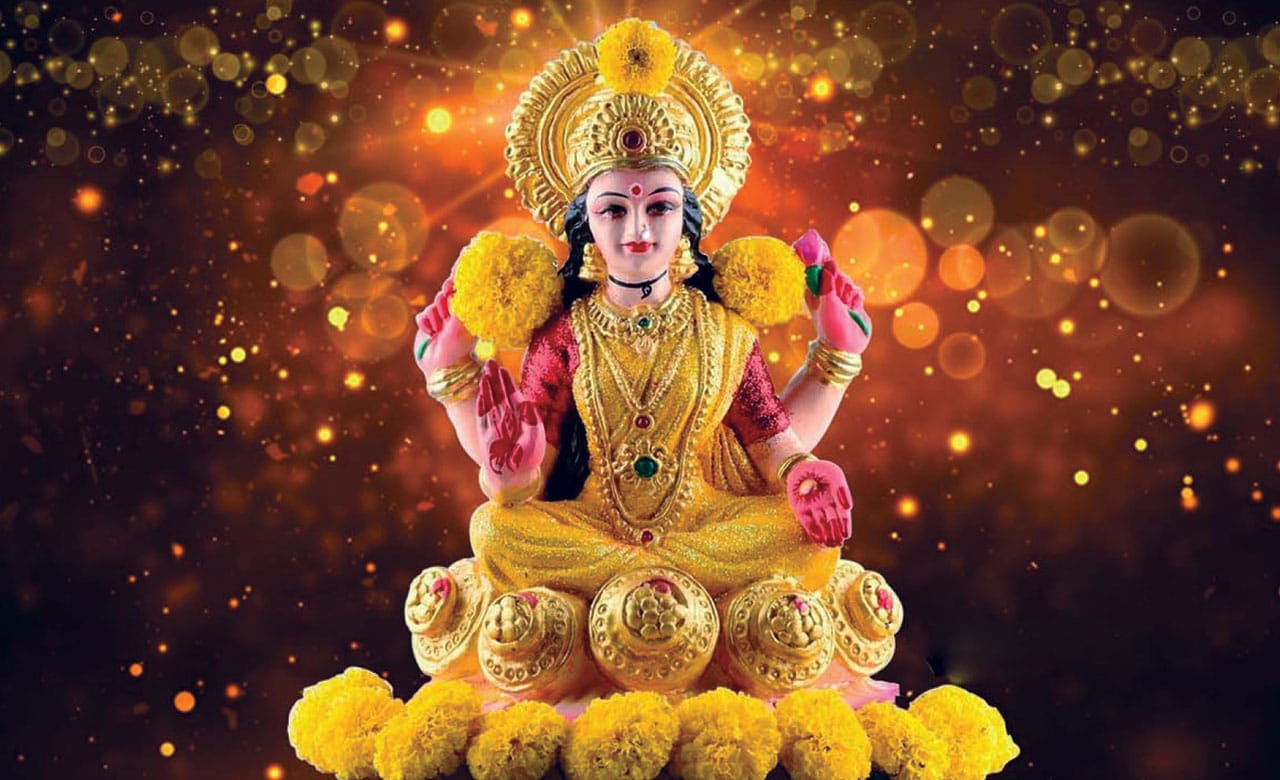
Spirituality
Diwali | Maha Lakshmi and Maha Kali Worship
The word Diwali is derived from Deepavali which translates to rows of lamps, Deepa meaning lamp and Vali meaning rows. It was later shortened to Diwali and is known as the ‘festival of lights’ in modern times.
There are two stories behind the festival. One includes Lord Rama’s return to Ayodhya after defeating Demon King Ravana who had kidnapped his wife Maa Sita. As Lord Rama accompanied by Maa Sita, his brother Laxman and the rest of the army returned to Ayodhya, everyone lit lamps to welcome them. The lamps were lit as it was a new moon night in the month of Kartik. Since then, the victory of good over evil and Lord Rama over Ravana is celebrated as Diwali.
The second story is of Goddess Lakshmi appearing during the mighty ocean churn known as Samudra Manthan. This was also the new moon in the month of Kartik and hence the tradition of Lakshmi Puja began on this day. Maa Lakshmi, is not only the symbol of material wealth and prosperity, but also detachment from world and spiritual power.
Maa Lakshmi has eight forms namely Adi Lakshmi, Dhan Lakshmi, Dhanya Lakshmi Vidya Lakshmi, Dhairya Lakshmi, Vijaya Lakshmi Sanatan Lakshmi and Bhagya Lakshmi. She blesses us in all eight forms bestowing material wealth and happiness as well as spiritual wisdom and prowess on us.
Let’s understand how each of her forms bless us in detail –
Maa Adi Lakshmi – She gives us the mental strength and a calm mind to be able to stand our ground in every situation. She helps us realize that we are part of the greater being and get rid of all the fears and insecurities.
Maa Dhan Lakshmi – Maa Dhan Lakshmi and Maa Dhanya Lakshmi give us material wealth and food to eat. Dhanya means grains. These two aspects of Maha Lakshmi help us sustain in the material world and focus on Sadhana so we can attain enlightenment.
Maa Vidya Lakshmi – Skills, talents, knowledge, wisdom and intellect are bestowed upon by Maa Vidya Lakshmi. All of these help us move forward and grow both spiritually and materially.
Maa Dhairya Lakshmi – We often find ourselves wanting certain things but setting unrealistic timelines to them. Maa Dhairya Lakshmi teaches us patience while helping us work towards our goals and achieving them smoothly while Maa Vijaya Lakshmi leads to the final victory.
Maa Sanatan Lakshmi – Unveiled from creativity and progeny, Maa Sanatan Lakshmi bestows us with imagination, vision, inspiration and creativity.
Maa Bhagya Lakshmi – She comes in the form of good fortune, luck and destiny. Maa Bhagya Lakshmi grants us everything that’s necessary for us and our family’s comfortable survival.
This is why, it is important to worship all forms of Maha Lakshmi to attain material as well as spiritual wealth. And what better day to do it than on Diwali.
Moving on to Maha Kali now. In many regions and Tantric Sects, Maha Kali is largely worshipped on the day of Diwali.
Known as the Kartik Amavasya Tantrik Puja, the worship is an acute invocation of Goddess Shyama Kali. Shyama means dark. The main purpose of this Puja is to seek Maha Kali’s help in destroying one’s ego and negativity so that spiritual and material growth can flow smoothly.
The benefits of worshipping Maha Kali on Diwali include – intense joy, prosperity, material and spiritual growth and protection against all negativity and adversities.
We hope this blog helped you understand how Diwali helps us bring both spiritual and material wealth in our lives. In order to get the Diwali Puja performed at home by one of our Vedic Scholars, you can write to us at info@chamundaswamiji.com
Post a Comment
-
Subscribe to Our Blog
-
Categories
-
Popular Articles
- Dead moth in the house. What universe is trying to tell you?
- Spiritual Meaning of Moth
- Vivah Bandhan Curse – What Is It and How to Spiritually Heal It.
- The Dasa Mahavidyas
- What are Beej Mantras?
- Tripura Sundari | The Dasa Mahavidya
- Maa Bhuvaneshwari | The Dasa Mahavidyas
- The Five Shades of Tantra
- Ramakrishna Paramhansa – The Man who almost became a Woman
- Maa Chinnamasta | The Dasa Mahavidyas




Leave a comment